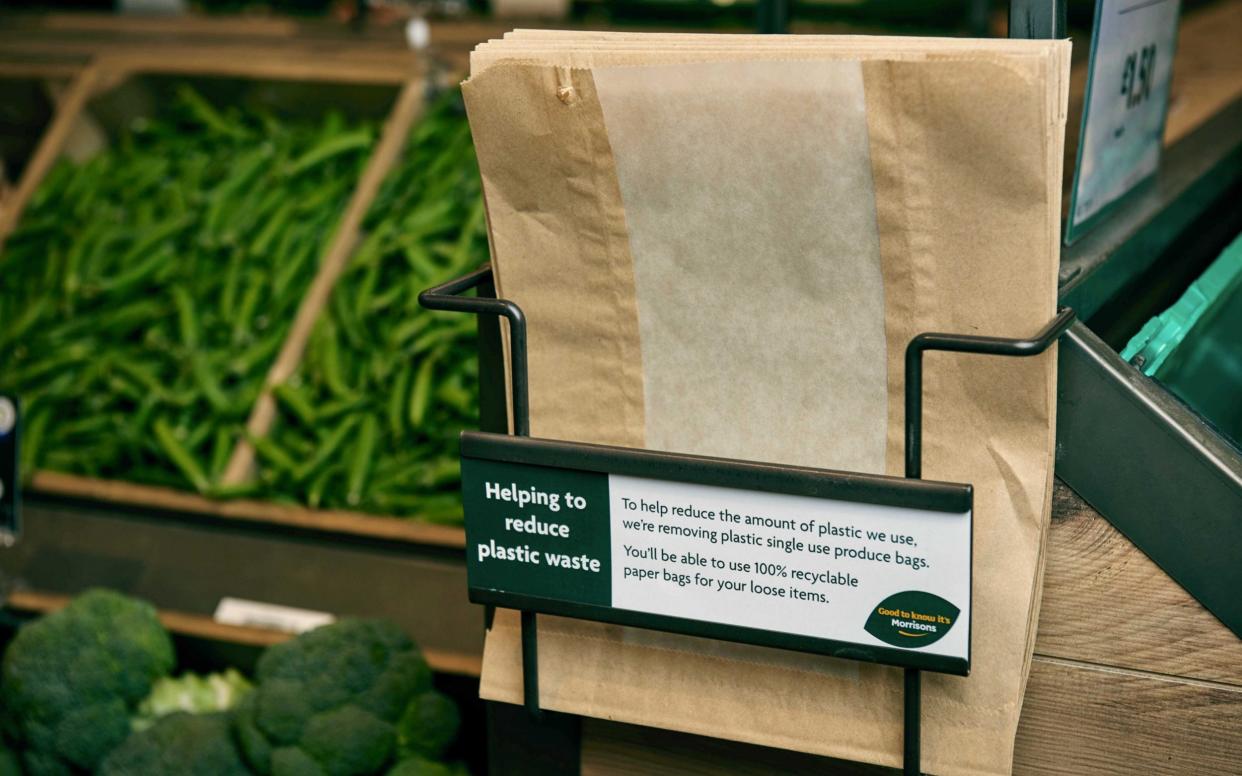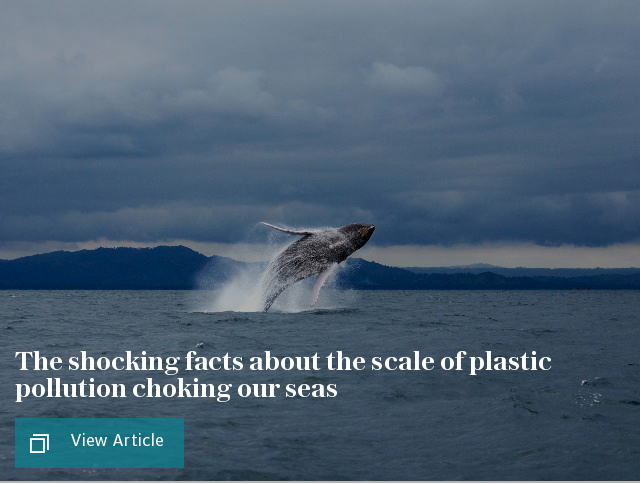Supermarkets to reintroduce paper bags for fruit and veg

The traditional brown paper bag is making a return to British supermarkets as Morrisons is today ditching plastic bags for loose fruit and vegetables in stores.
The move is expected to be rolled out other major supermarkets and is the latest in a string of changes designed by the grocery chain to eradicate single-use plastics.
It comes after shoppers buying meat and fish were last month urged to take Tupperware to the supermarket so plastic bags were no longer needed.
Now Morrison's has said customers who make the effort to bring their own containers will be rewarded with extra loyalty points worth 10p.

The new paper grocery bags, made from recycled paper, will have a see-though paper strip so that customers and check-out staff can identify what produce they contain.
The supermarket claims the change will save 150 million plastic bags every year.
Despite the arrival of the new paper bags, Morrison's will continue to sell multi packs of fruit and vegetables in plastic bags, it said.
Growing public and political concerns about plastic pollution, spurred by environmental documentaries such as the BBC’s Blue Planet II, have resulted in more brands taking a stand against plastic.

Morrisons fruit and veg director Drew Kirk said customers concerns about plastic bags for loose groceries had led the supermarket to return to the traditional paper sacks used in greengrocers.
Morrisons said it has committed to ensure all plastic in its stores in recycled, reusable or compostable by 2025.
Meanwhile in a bid to reduce food waste Tesco is removing "best before" dates from most of its fresh fruit and vegetable packs, leaving consumers to use common sense to decide when they are no longer fit to eat.
The move, which applies to own-brand lines including apples, potatoes, tomatoes, lemons and onions, comes after campaign groups warned best before dates were confusing shoppers and encouraging needless food waste.

 Yahoo News
Yahoo News 
